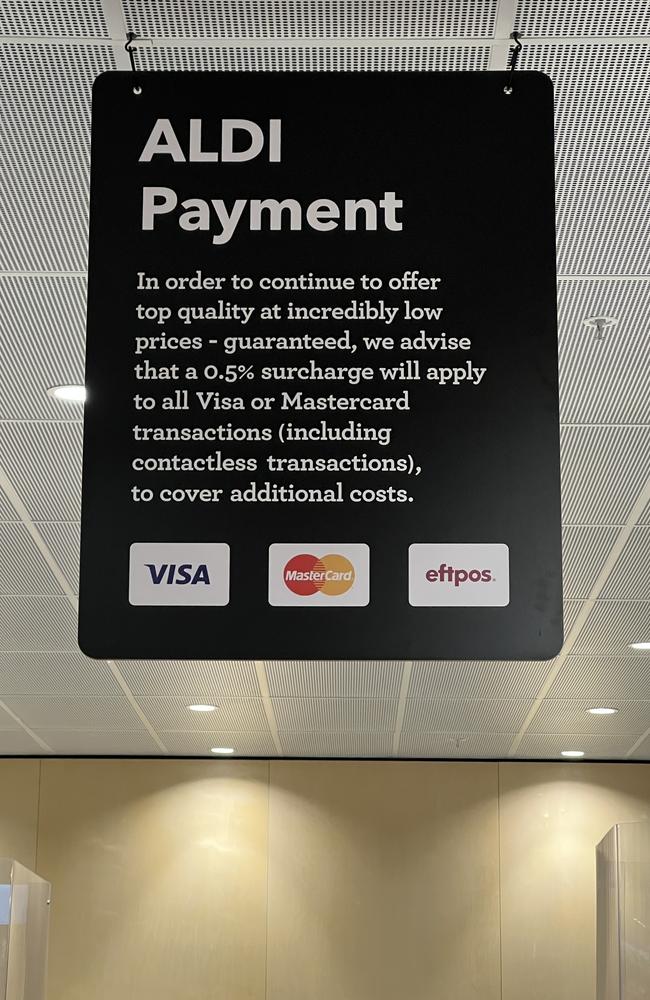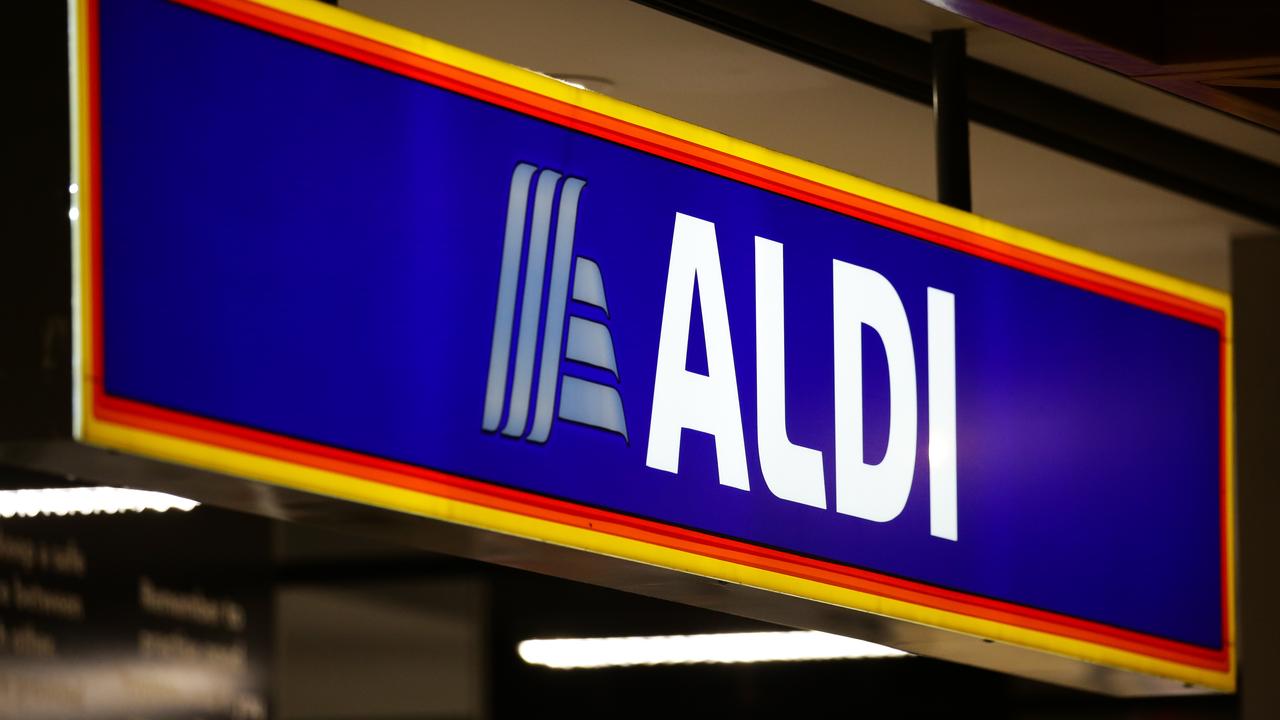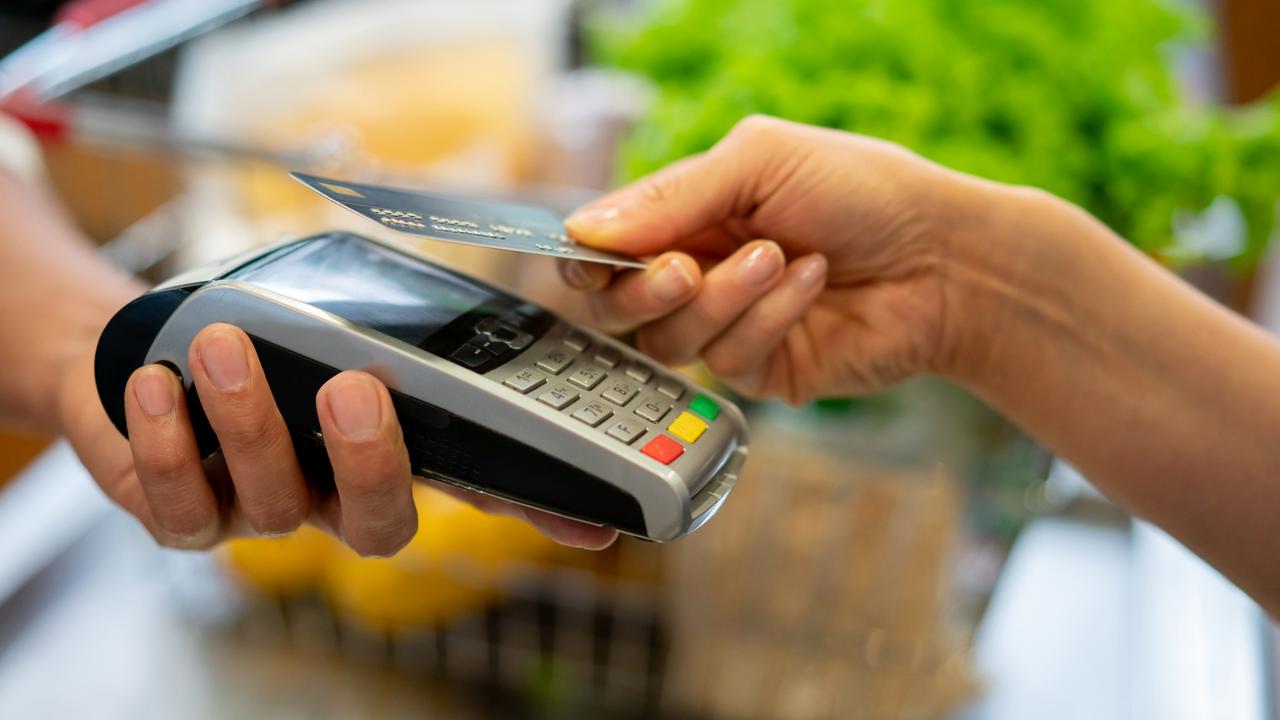Aldi responds to customer’s ‘hidden fees’ checkout confusion
Aldi shoppers have been left scratching their heads over an easy-to-miss detail on signs at the budget supermarket’s check-outs.

Aldi shoppers have been left scratching their heads over an easy-to-miss detail on signs at the budget supermarket’s checkouts.
The sign, typically placed above the German retailer’s cash registers, notifies customers that some card transactions will incur a 0.5 per cent surcharge.
“In order to continue to offer top quality at incredibly low prices – guaranteed, we advise that a 0.5 per cent surcharge will apply to all Visa or MasterCard transactions (including contactless transactions) to cover additional costs,” it reads, and features the logos for Visa, MasterCard and EFTPOS underneath.
But customers were “confused” about which transactions the surcharge actually applies to, after spotting the “hidden fee” on top of their grocery bill.
“I saw at a Brisbane Aldi that ALL cashless transactions now attract a 0.5 per cent surcharge (not just the tap-and-go ones),” one shopper wrote on Facebook.
“Although it only says Visa and MasterCard it also DISPLAYS the EFTPOS logo. (So maybe I just thought EFTPOS was included).”

“This definitely makes it sound like it’s all transactions, I’m so confused,” another said.
While a third commented, “Aldi should not put the EFTPOS logo on that sign.”
Responding to the confusion on Facebook, an Aldi staff member explained that “all Visa and MasterCard transactions (credit account) is charged this fee regardless if a card is inserted or tapped”.
“All EFTPOS (savings/cheque account) transactions do not get charged a fee regardless if card is tapped or inserted,” they added.
An Aldi spokeswoman confirmed to news.com.au that the surcharge is not new, and only applies to contactless transactions for debit cards – meaning if a customer inserts their card and selects “savings”, there won’t be a fee.
According to Aldi’s website, “there are very high costs associated with accepting (Visa and MasterCard) cards”.

“Rather than Aldi inflating prices across the board to compensate for the credit card acceptance costs (like most of the retailers do) Aldi instead allows customers to make the choice as to the payment method they prefer,” the site reads.
“This allows customers who choose the lower cost method of payment, to receive the direct benefit by way of lower prices.”
It’s not the first time customers have flagged the fee – earlier this year, one wrote in an Aldi fans Facebook page that they “just found out today about the Aldi swipe tax” and it “will not happen again”.
At the time, hundreds of shoppers flooded the comments to inform the man that the surcharge had “been around for years”.
Others also pointed out that most retailers have a contactless and credit card fee – but tend not to advertise it.
“Have you been hiding under a rock? They have been doing it for years. There are signs everywhere at the register and at times the cashier reminds you before you tap,” one wrote.
“All supermarkets do it, Aldi just tells you about it,” another commented.

Surcharges for contactless and credit card payments are not new – nor are they illegal, according to the Australian Competition and Consumer Commission (ACCC).
Per the ACCC website, when you pay a business using certain payment types, the business incurs costs for processing the payment.
“These costs are usually paid by the business to its bank. Some businesses include these costs in the price they charge for their goods or services,” the website reads.
“Others pass the costs on as a payment surcharge.”
Australia has had a ban in place against excessive surcharges since February 2016, meaning consumers can typically expect to pay between 0.5 and 2 per cent per transaction.






